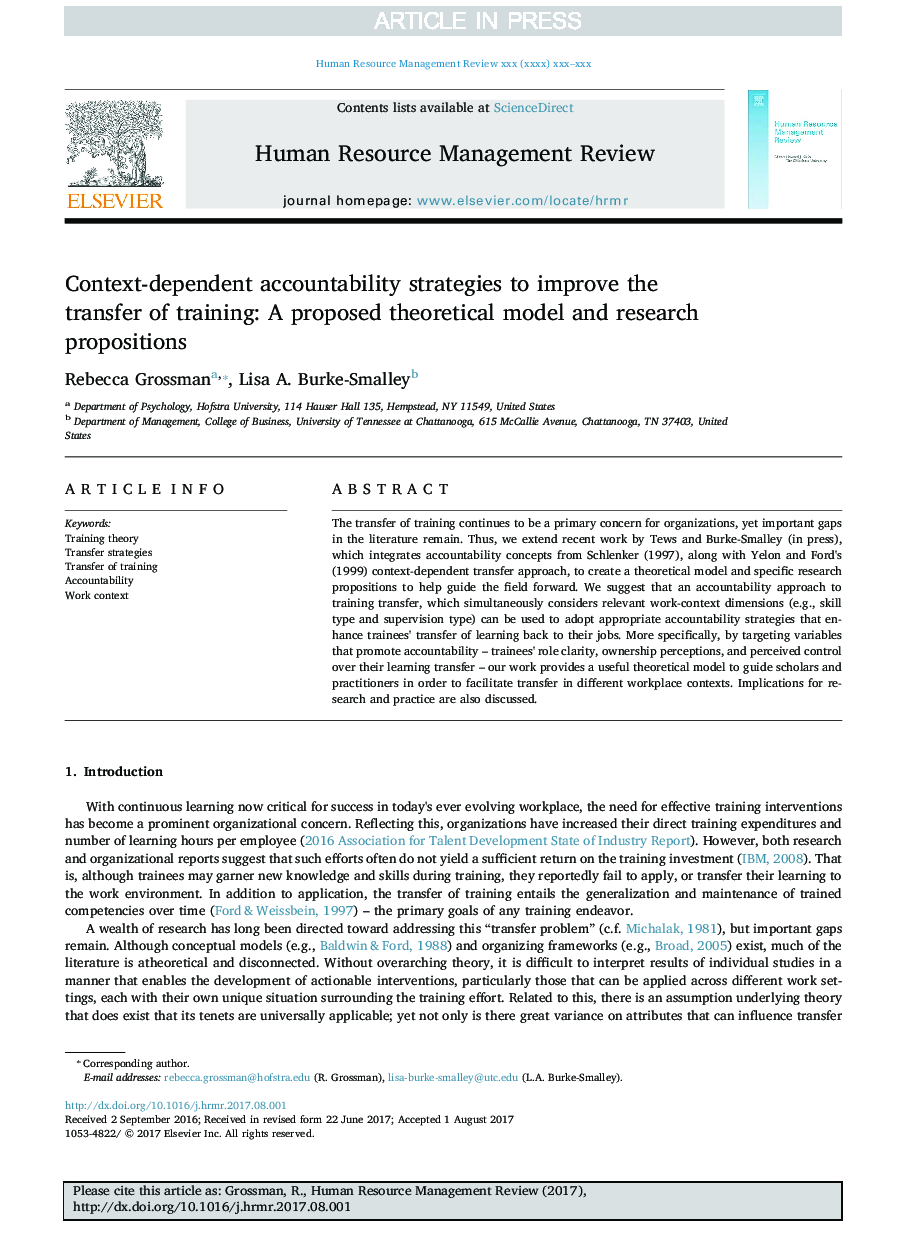| Article ID | Journal | Published Year | Pages | File Type |
|---|---|---|---|---|
| 7240137 | Human Resource Management Review | 2018 | 14 Pages |
Abstract
The transfer of training continues to be a primary concern for organizations, yet important gaps in the literature remain. Thus, we extend recent work by Tews and Burke-Smalley (in press), which integrates accountability concepts from Schlenker (1997), along with Yelon and Ford's (1999) context-dependent transfer approach, to create a theoretical model and specific research propositions to help guide the field forward. We suggest that an accountability approach to training transfer, which simultaneously considers relevant work-context dimensions (e.g., skill type and supervision type) can be used to adopt appropriate accountability strategies that enhance trainees' transfer of learning back to their jobs. More specifically, by targeting variables that promote accountability - trainees' role clarity, ownership perceptions, and perceived control over their learning transfer - our work provides a useful theoretical model to guide scholars and practitioners in order to facilitate transfer in different workplace contexts. Implications for research and practice are also discussed.
Related Topics
Social Sciences and Humanities
Business, Management and Accounting
Marketing
Authors
Rebecca Grossman, Lisa A. Burke-Smalley,
